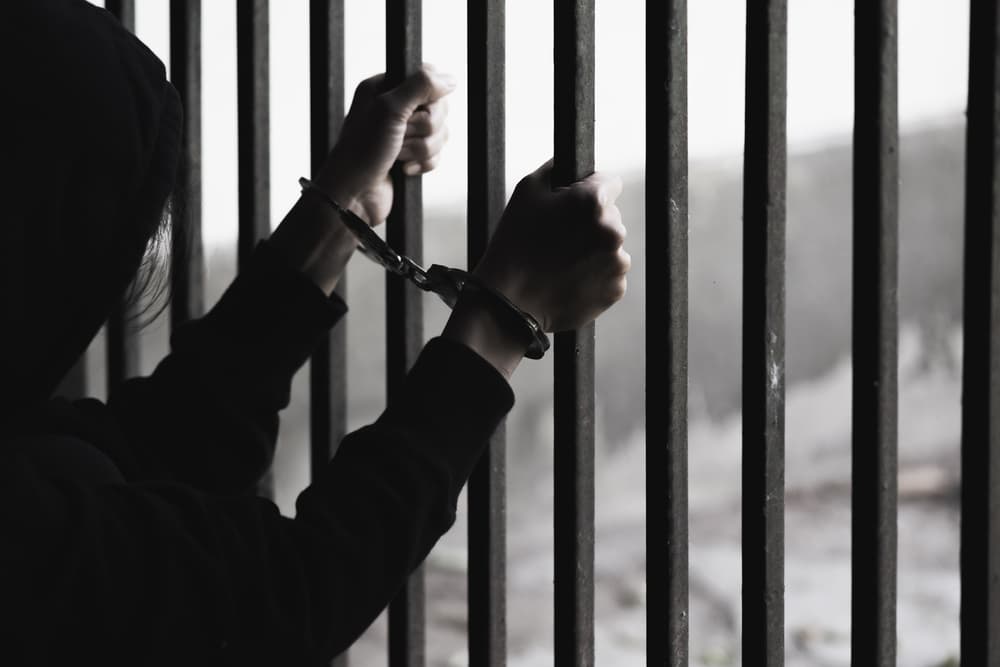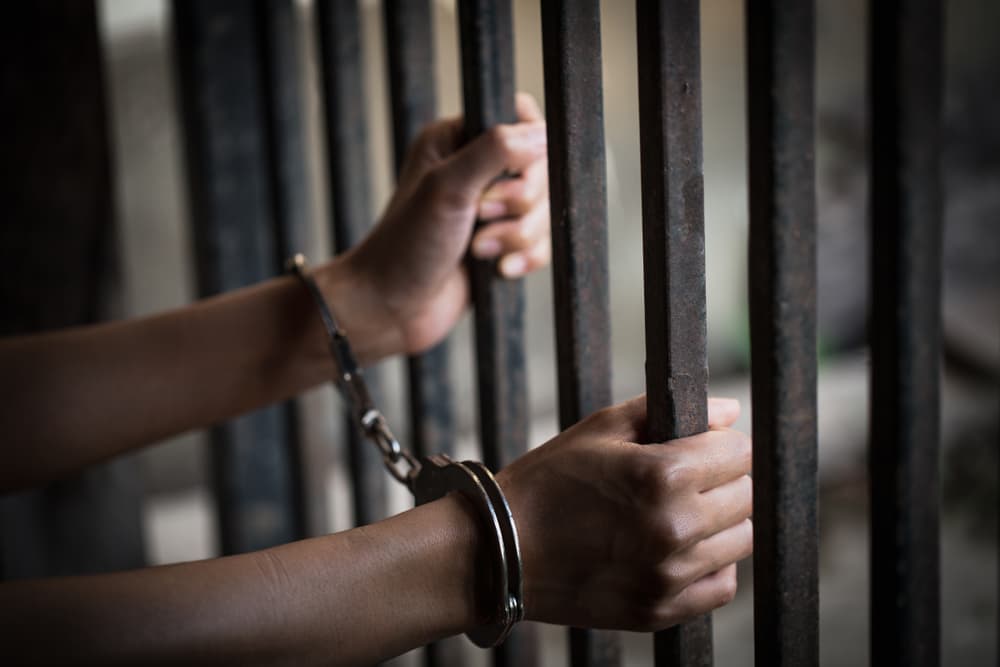The state of California is facing allegations of systemic sexual abuse at its women’s prisons, with survivors’ voices pushing these injustices into public view. These reports shine a glaring spotlight on vulnerabilities within correctional facilities, where incarcerated women have claimed they suffered egregious abuse from those entrusted with their safety.
This investigation centers on two major state-operated facilities under the California Department of Corrections and Rehabilitation (CDCR): the Central California Women’s Facility in Chowchilla and the California Institution for Women in Chino. The allegations outline stories of pain, betrayal, and survival, where prison staff are accused of exploiting power to inflict harm. These survivors’ courage in speaking out is driving an overdue reckoning of prison practices, accountability, and justice.
At File Abuse Lawsuit, we are dedicated to standing with survivors, amplifying their voices, and fighting for justice. Our compassionate team of California prison sexual abuse lawyers is here to provide support and guide you through your options with care and respect.
A Reckoning with Systemic Violations
The U.S. Department of Justice (DOJ) issued a statement announcing its formal inquiry into these allegations, describing “significant justification” for launching an investigation. Survivors and advocates have long called attention to misconduct in these institutions, but the recent move by federal authorities signals a decisive response to their stories and the mounting lawsuits brought forward on their behalf.

At the heart of this investigation are claims that some correctional officers wielded their authority to perpetrate dehumanizing abuse. According to the DOJ, correctional staff allegedly sought sexual favors from incarcerated women in exchange for access to contraband or privileges. Alarmingly, these accusations extend beyond isolated incidents, pointing instead to a troubling pattern of behavior by those tasked with safeguarding the rights and dignity of individuals in their custody.
Kristen Clarke, assistant attorney general for the DOJ’s Civil Rights Division, emphasized the stakes of this investigation, stating, “No woman incarcerated in a jail or prison should be subjected to sexual abuse by prison staff who are constitutionally bound to protect them.”
Among the accused are prison officials responsible for handling sexual abuse complaints—people who were supposed to offer survivors a path to justice and safety. This betrayal of trust leaves survivors not only violated but often isolated, silenced by fears of retaliation.
Rising Voices from Survivors
The voices of survivors have been crucial in mobilizing this investigation, with hundreds of lawsuits being filed in recent years. One such case brings together the accounts of 21 women incarcerated at the Chino facility between 2014 and 2020. According to the lawsuit, correctional officers allegedly subjected women to groping, rape, forced participation in oral sex, and threats of violence to ensure compliance.
These are not mere statistics or reports. Each lawsuit represents a person—a survivor—who experienced violations that will likely impact them long after they walk free. For many, coming forward to report abuse can feel just as harrowing as the abuse itself. Survivors must often weigh the risks of speaking out against the possibility of being ignored, retaliated against, or retraumatized.
California’s prison population includes a significant number of individuals who have histories of abuse prior to incarceration. For correctional officers to take advantage of already vulnerable populations adds another layer of harm. That trauma does not simply remain behind prison walls; it reverberates through the lives of these women and their loved ones once they return to the outside world.
One survivor, included in these lawsuits, describes the pain of betrayal she experienced at the hands of those who were supposed to ensure her safety. The accounts echo a broader concern about a culture of impunity—one in which those in power act as though they will never be held accountable for their actions.
System Failures and Accountability
The allegations being investigated not only bring attention to individuals’ acts of harm but also call out systemic failures in oversight and accountability. For years, survivors and advocates have identified oversight mechanisms that appear more focused on protecting accused staff than ensuring survivor safety.
Those accused of misconduct include prison officials specifically responsible for addressing abuse complaints, raising serious concerns about transparency and impartiality in these processes. Survivors often describe feeling abandoned during attempts to report abuse—left without meaningful recourse as their complaints are dismissed, minimized, or ignored altogether. This suppression of voices serves to perpetuate cycles of harm.
Jeff Macomber, secretary of the CDCR, responded to the investigation by stating, “Sexual assault is a heinous violation of fundamental human dignity that is not tolerated—under any circumstances—within California’s state prison system.” While this message aligns with the basic rights that every incarcerated individual is entitled to, survivors’ accounts reveal a disconnect between prison policy and prison reality.
It is critical that these organizations publicly commit to transparency and take concrete actions to rebuild trust, particularly with the survivors who have been silenced for too long. True accountability will require more than words—it demands follow-through in addressing these abuses with honesty, urgency, and survivor-centered reforms.
Patterns of Abuse in Correctional Systems

The infliction of sexual violence at correctional facilities is not unique to California. Across the country, similar patterns of abuse have emerged, exposing major gaps in oversight, accountability, and the culture within certain prisons.
A prominent example arose last year when the federal Bureau of Prisons announced the closure of the Federal Correctional Institution in Dublin, a women’s prison in Northern California. Known disturbingly as the “rape club,” this facility became infamous after an Associated Press investigation revealed extensive sexual abuse by correctional officers.
While such closures highlight the severity of these abuses, they underscore the urgency of addressing the root causes that allow them to happen in the first place. Survivors of abuse in correctional systems often face extraordinary barriers to justice—from being disbelieved to having no safe avenues for speaking out.
California is now at a crossroads, grappling with its own reckoning. Survivors and advocates say it’s not enough to pursue individual accountability for those committing the assaults. True change will require reexamining the culture and practices that create environments where abuse can flourish unchecked.
Pushing for Change
The sheer act of launching this investigation shows a shift, albeit gradual, toward listening to survivors and demanding better of the institutions involved. While investigations alone cannot undo the damage already inflicted, they hold the potential to set critical reforms in motion.
Advocates for survivors highlight several steps needed to combat sexual abuse in prisons effectively:
- Independent Oversight: Creating truly independent bodies that review abuse allegations and oversee investigations can help eliminate conflicts of interest.
- Survivor-Centered Reforms: Ensuring prison policies prioritize survivor well-being, emphasizing safety, privacy, and access to trauma-informed care.
- Cultural Change: Addressing entrenched norms within correctional facilities that dehumanize incarcerated individuals and enable power imbalances to be abused.
These changes are not optional—they are necessary to rebuild trust and restore dignity to those who have endured the trauma of prison-based abuse.
Understanding Your Rights
If you or a loved one has experienced sexual abuse while incarcerated, it's crucial to understand your rights:
- You have the right to be free from sexual abuse: The Prison Rape Elimination Act (PREA) of 2003 is a federal law designed to prevent, detect, and respond to sexual abuse in correctional facilities.
- You have the right to report abuse: Prisons are required to provide multiple ways for incarcerated individuals to report sexual abuse, including anonymous reporting options.
- You have the right to medical care and counseling: Survivors of sexual abuse in prison should have access to medical care and mental health counseling.
- You have the right to be protected from retaliation: It is illegal for staff or other incarcerated individuals to retaliate against you for reporting sexual abuse.
- You have the right to pursue legal action: Even after release, survivors of prison sexual abuse may be able to seek justice through civil lawsuits.
Incarcerated individuals retain their rights under the U.S. Constitution, including the right to be free from cruel and unusual punishment and the right to protection from harm. Sexual abuse by correctional staff is a gross violation of these rights, and survivors have the legal standing to hold their abusers accountable in civil court.
A Call to Action
To the survivors who have come forward to share their stories and stand against unbearable pain—we see your courage. Your bravery in pushing the conversation forward, despite all odds, gives strength to others who may feel silenced. Whether seeking action through legal conflicts, speaking your truth, or choosing to heal quietly—you matter.
This investigation is not just about uncovering wrongdoings; it is about holding individuals and systems accountable and ensuring safeguards for future generations. Survivors deserve honesty, empathy, and an unwavering commitment to justice.
If you or someone you know has experienced sexual abuse in similar circumstances, it’s important to know there is help, and there are advocates ready to listen. Speaking up can be incredibly difficult, but it can also be a step toward reclaiming your voice and restoring your sense of self.
At File Abuse Lawsuit, we are dedicated to standing with survivors, amplifying their voices, and fighting for justice. Sexual abuse is never your fault, and you deserve to be heard. Our compassionate team is here to provide support and guide you through your options with care and respect. You are not alone.
For more information or to take the next step, reach out to File Abuse Lawsuit for a free consultation. Safe, confidential help is available.